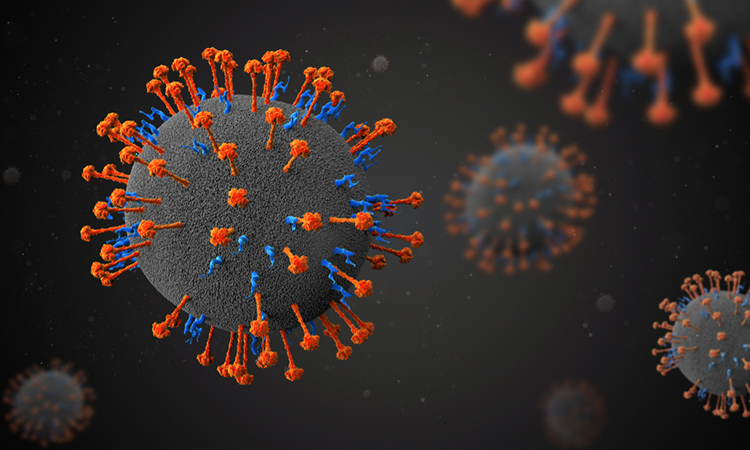High-throughput screening platform detects henipavirus antivirals
Posted: 3 June 2021 | Victoria Rees (Drug Target Review) | No comments yet
A new high-throughput screening platform has been used to identify two compounds with antiviral activity against the Nipah and Hendra viruses.


To facilitate the development of henipavirus antivirals, a high-throughput screening platform has been created based on a well-characterised recombinant version of the non-pathogenic Henipavirus, Cedar virus (rCedV). The new method was developed at a range of institutions including the University of Illinois at Chicago, US.
According to the researchers, Nipah virus (NiV) and Hendra virus (HeV) are highly pathogenic, bat-borne paramyxoviruses in the genus Henipavirus that cause severe and often fatal acute respiratory and/or neurologic diseases in humans. There are currently no approved antiviral therapeutics or vaccines for use in humans to treat or prevent NiV or HeV infection.
In the new study, the team used reverse genetics to rescue a rCedV encoding firefly luciferase (rCedV-Luc). Subsequently, its utility was evaluated for high-throughput antiviral compound screening. The luciferase reporter gene signal kinetics of rCedV-Luc in different human cell lines was characterised and validated as an authentic real-time measure of viral growth. The rCedV-Luc platform was optimised as an high-throughput screening assay that demonstrated high sensitivity with robust Z’ scores, excellent signal-to-background ratios and coefficients of variation.
Eight candidate compounds that inhibited rCedV replication were identified by the researchers for additional validation. They found that four compounds inhibited authentic NiV-Bangladesh replication. Further evaluation of two of the four validated compounds in a nine-point dose response titration demonstrated potent antiviral activity against NiV-Bangladesh and HeV, with minimal cytotoxicity.
“Here, an authentic replication-competent henipavirus assay system using rCedV was developed to safely and rapidly identify small molecule antivirals targeting henipavirus replication,” the authors of the study write.
Overall, the team say that this rCedV reporter can serve as a surrogate yet authentic henipavirus platform that will dramatically accelerate drug candidate identification in the development of anti-henipavirus therapies.
The study was published in Antiviral Research.
Related topics
Assays, Drug Leads, High-Throughput Screening (HTS), Screening, Small Molecules
Related conditions
Hendra virus (HeV), Nipah virus (NiV)
Related organisations
University of Illinois at Chicago.








